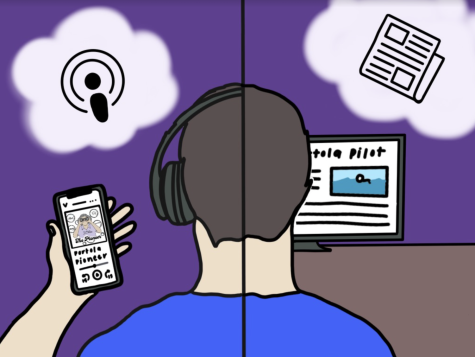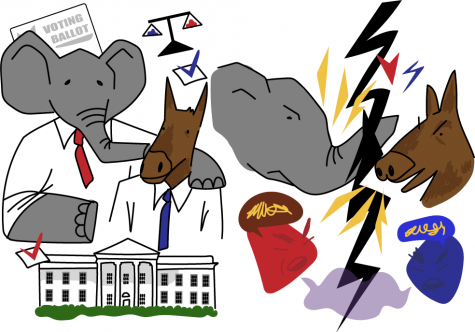Singers, not Synchers: Artists Should Not Rely on Prerecorded Tracks During Concerts
April 18, 2023
Fans often spend hundreds, even thousands, of dollars to secure tickets to their favorite artist’s latest concert. Ready to hear the songs they have spent months memorizing performed live onstage for the first time, fans are both shocked and disappointed to hear the artist merely mouthing along to a prerecorded track of the musician’s vocals.
This phenomenon has become a common occurrence in recent years with many singers choosing to prioritize visual performance over their own musical talents, according to British historian Ian Inglis in his book “Performance and Popular Music.”
Artists should refrain from performing to pre-recorded audio in order to maximize the value they provide fans who sacrificed both time and money to attend their concerts.
“Listening to live music is part of the concert experience,” senior Ama Loukili said. “Lip synching for a bit is okay, of course, so the performers can catch their breath, but concerts should always be majority live vocals.”
Typically, performers use lip-synching to mask perceived deficiencies in the artist’s performance; much of these perceptions may actually stem from pressure put on artists to perform a “perfect” show by the watchful eyes of the media, according to Untapped Sound.
Despite this, artists should not feel obligated to lip-synch for perfection’s sake; rather, they should allow each show to be unique and embrace mistakes they may make on stage.
Artists such as Rihanna and Billy Joel have historically invited fans up to perform with them on stage, according to VH1. On her current stadium tour, renowned pop star Taylor Swift chose to switch up the setlist by adding two “surprise” acoustic songs each night. These actions increase fan interaction and are ultimately more entertaining than lip synching.
Some may argue that it is the artist’s obligation to create the best show possible and that lip synching is the only means to perform particularly difficult numbers.
But the true merit of a concert’s validity should not be judged on the singers’ technical prowess. It should be the unique personality they develop that takes center stage instead.
At the end of the day, one fundamental element of singers’ artistry is their ability to cater to their fans, and embracing spontaneity is one of the easiest ways to achieve that. Focusing too hard on creating a technically perfect show ultimately detracts from that, upsetting fans who made dedicated efforts to see these shows.












